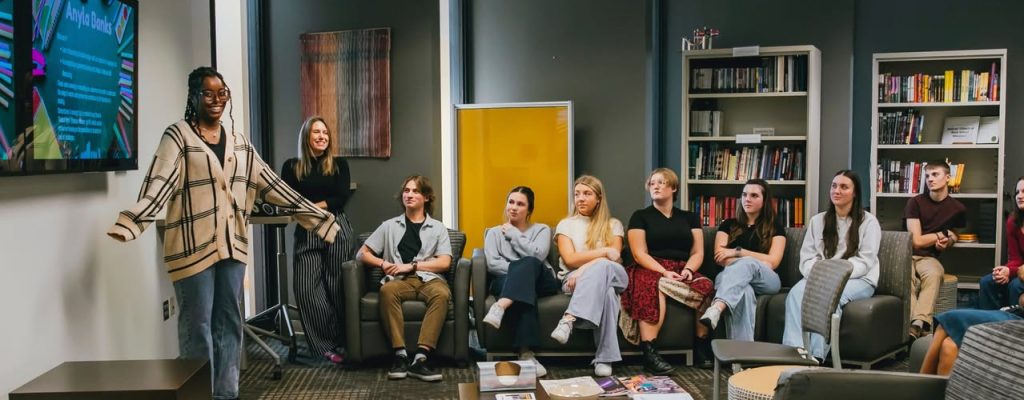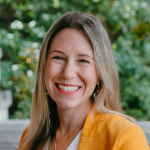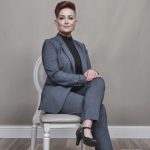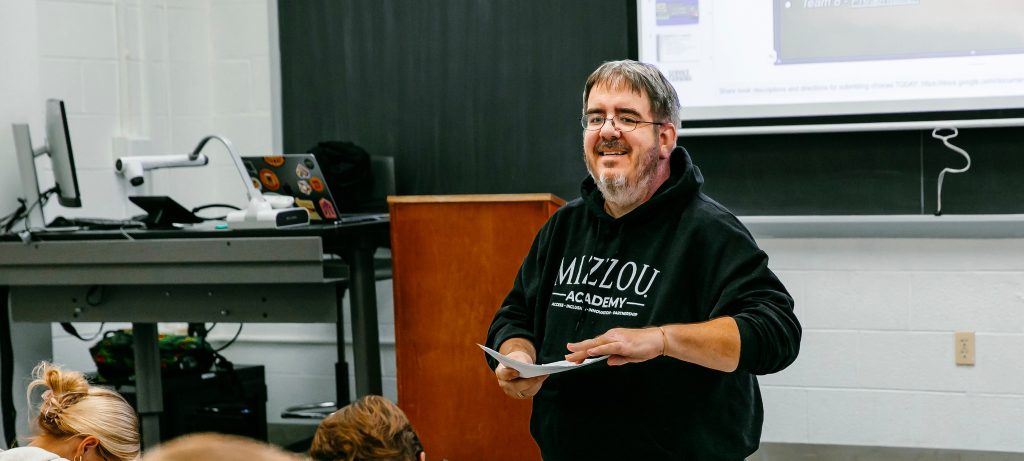Powerful Teaching is Connected Teaching
Posted in: NewsMizzou Academy Faculty share how their work in the K-12 lab school supports their work in higher education.

Teaching and Learning Beyond Grade Level
Most of David Prats’ work as our World Language Chair involves working with high school students; however, this academic year, he has also spent a lot of time teaching Spanish language classes in middle school classrooms and higher education lecture halls.

Prats has a passion for working with beginning language learners. “Introductory level is where you typically see the biggest jumps in proficiency,” he says. He explains that during the semester, he enjoys seeing his students go “from almost no knowledge of the language to being able to hold basic conversations about everyday life.” Whether he’s teaching a language lab with our middle school partners or holding a lecture in Spanish 1100, the fundamental goals and questions Prats asks himself about teaching and learning are the same. These questions involve connection, relevance, and inclusion.
Powerful Learning Leads to Powerful Teaching

“Regardless of grade level, powerful teaching is connected teaching,” says Executive Director Dr. Kathryn Fishman-Weaver. “The more we learn about the world and each other, the more effective we become in our work in schools. Whether K-12 or higher education, this kind of learning is ongoing.” In addition to directing the lab school, Fishman-Weaver also teaches and coordinates undergraduate teacher education courses and advises doctoral students on their research.

Last semester Ericca Thornhill, our Division Chair for science, had the opportunity to teach LTC 4280 Teaching Science in Elementary Schools. She has taught in K-12 since 1997, but this was her first experience with college teaching.
Thornhill shares that she was surprised by how similar college teaching is to K-12 teaching. “I don’t know why, because great learners have similar characteristics at every age. I’m able to share the cool connections I have with teaching science to students at Mizzou Academy with my preservice teacher students, to help provide them with more examples of how to teach science.”
This semester, she’s back in LTC 4280 and excited to be working with learners from middle school through college.
Technology and Education

Dr. Jason Williamson joined the Mizzou Academy faculty last semester. He holds a split position as a Lead Social Studies Teacher at Mizzou Academy and as an Assistant Professor in Learning, Teaching, and Curriculum. He says the online classes he leads at Mizzou Academy have helped him expand his thinking “about this new context of digital teaching and the lessons we create and use in our classrooms. I feel like seeing teaching from a different perspective or in a different context helps me think differently about preparing teachers for their classrooms. The students in my teacher education classes will grapple with new challenges because education is changing.” He credits his Mizzou Academy colleagues and students for helping him “think about this educational world from a broader and more holistic perspective.”

One of these colleagues is PhD candidate Beka Hanak, a Graduate Teaching Assistant at both Mizzou Academy and in a teacher education course with Dr. Donette Alonzo. Hanak has a strong background in computer science and mathematics education. Alonzo has been inspired by how eagerly Hanak “learns and incorporates new technological tools to enhance her teaching, making lessons more accessible, interactive, and impactful.” She has also brought this same skill set to her work in middle school curriculum design in our math program. Alonzo says Hanak’s “approach to integrating technology isn’t just about staying current; she thoughtfully selects and applies tools that enrich the learning experience and foster student understanding.”
Several faculty at Mizzou Academy shared that they go to Hanak for advice on navigating and selecting the best technological tools to reach instructional goals in K-12 and higher education.
A Global Approach

Over the last few years, Mizzou Academy students have joined the lab school from over 60 different countries. Like several on the Mizzou Academy team, Assistant Professor of Professional Practice Kimberly Kester has a strong background in multilingual education and English learner support. Her experiences teaching and learning with international students inform the global approach she brings to both her high school courses with Mizzou Academy and her upper-level undergraduate course in Educational Leadership and Policy Analysis.
Kester credits the United Nations Sustainable Development Goals (SDGs) as an important instructional framework for her in both teaching spaces. In her ELPA 4151 class, “Students see how their leadership can influence other teachers and students and how it can impact policy. This is all based on the UN SDGs. The students ask themselves, ‘How can I help my (classroom, cohort, peers, etc.) meet the UN SDGs?’ Likewise, in the [ high school] Capstone course, students state and solve problems in their communities by applying the SDGs and their own knowledge of their communities.”
Student-Centered Teaching
Middle School Coordinator Brian Stuhlman loves working with future teachers, current teachers, and middle school learners. He has found something particularly special about the sophomore-level students in his teacher education course. “These students,” he says, “are aware of the realities of the career they’ve chosen, and they continue forward with joy and hope.”

As we start this new semester of teaching and learning across K-12 and higher education, our Mizzou Academy faculty share that same hope and joy. As a school, we are proud to again have several faculty who have extended their service to our teacher education programs, including taking on new courses to teach and coordinate.

Among these is Stephanie Walter’s updated LTC 2040 online section. Walter serves as our Director of Teaching and Learning. “We talk a lot about community and the essential nature of building relationships with our students—K-12 and beyond,” says Walter. “Working as learners in an online classroom gives us a great chance to think about building connections with students in all sorts of contexts. I’m eager to see what we learn together this semester and how it influences our digital classroom community and future teaching practices.”